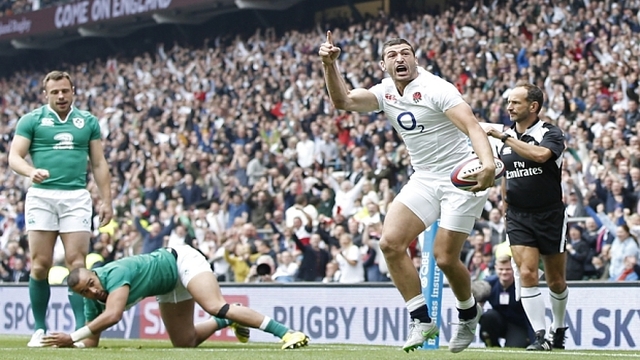The quest for confidence
As the sport’s elite prepare for the latest Rugby World Cup, mini and junior players throughout the UK are embarking on a formidable challenge of their own – the transition from tag to contact rugby.
Clubs up and down the country, including my own in Farnham, have welcomed back wave after wave of youngsters including some particularly keen Under 9s excited by the prospect of taking a crucial step towards playing the game they see on TV.
With new boots, kit and a compulsory gum shield, they arrive perhaps a little daunted by the limited physical demands of the latest version of the game they will have to play instead of the playground-friendly pastime they have enjoyed to this point.
They will be required to tackle opponents for the first time but importantly there is still no contest for the ball at the tackle, no rucks, mauls, lineouts or scrums.
But any anxiety is trumped by a hunger to learn, a desire to improve as players – and emulate the likes of Chris Robshaw, Richie McCaw and their other hard-hitting heroes.
They devour instruction from their coaches and do their best to ‘get close’, ‘get low’ and ‘squeeze’ and try to commit phrases such as ‘feet to feet’, ‘cheek to cheek’ and ‘ring of steel’ to memory.
Mistakes are made, heads end up in dangerous places and limbs lands intertwined but players bounce back up onto their feet with smiles on their faces, eager to try again and again.
But the next generation of stars are not the only ones seeking knowledge, skill and ultimately confidence to perform at the highest possible level.
They have company in the form of some of the sport’s elite players.
We have previously addressed on these pages how coaches have harvested ideas from other sports with England boss Stuart Lancaster among those who has drawn on methods used in rival codes such rugby league and Aussie Rules – and even cycling.
But modern professional players have an ability to think for themselves and they are just as keen to discover and leverage any technique or approach that could give them a priceless edge.
Such voracity came to light in the wake of England’s victory over Ireland in their final Rugby World Cup warm-up clash last weekend.
England’s morale boosting win was punctuated by several examples of superb aerial play with full-back Mike Brown and wing Anthony Watson both bringing the Twickenham crowd to its feet with some sensational skills.
Just a few short months after being schooled by the Irish in the same aspect of the game during their latest Six Nations meeting in Dublin, England showed the results of some valuable homework.
Brown’s extra curricular activity included reviewing footage of Israel Folau, the Australian international who sets the bar when it comes to aerial combat.
“Folau sets the standard,” admitted Brown following his side’s 21-13 success.
Such public praise for a rival – and an acknowledgement of their superiority – is rare in the verbal exchanges that precede a high-profile clash and England’s World Cup meeting with Australia later this month certainly falls into that category.
But it is certainly understandable on this occasion.
Folau’s impressive athleticism and superb all round skill set caught the eye during earlier stints in rugby league and Aussie Rules but he has quite literally soared to unprecedented heights since his switch to rugby union.
With encouragement from Lancaster, Brown has studied Folau’s ability to ‘make the ball his own’ but his thirst for knowledge did not stop there.
All the leading full-backs in the sport have come under Brown’s gaze and every scenario has been replicated in training in a quest for a competitive edge.
“The coaches leave no stone unturned,” Brown told The Daily Telegraph. “You have to build that confidence within yourself that you can do it in the Test arena.”
Watson’s exploits were just as impressive as he climbed above Irish rival Simon Zebo to lay claim to a pin-point cross-field kick from England fly-half George Ford before dotting down for a try.
It was just the latest example of an increasing use of such a focus-switching tactic by those sides blessed with the precision offered by the likes of Ford and the acrobatic ability of athletes such as Watson.
The latter’s leap owed great deal to his admiration of another game breaker and standard bearer – NFL star Odell Beckham Jnr.
The New York Giants’ wide receiver made his name with some outstanding and often jaw-dropping exploits during his rookie year last season that included a simply sensational one-handed catch against the Dallas Cowboys.
Watson was clearly one of those hypnotised by Beckham Jnr’s ability to pluck a ball out of mid-air at full pace with the 21-year-old Watson reportedly fond of being called ‘Odell’ in training.
It appears the elite game and its grassroots counterpart share not only a thirst for knowledge but a fondness for hero worship.


